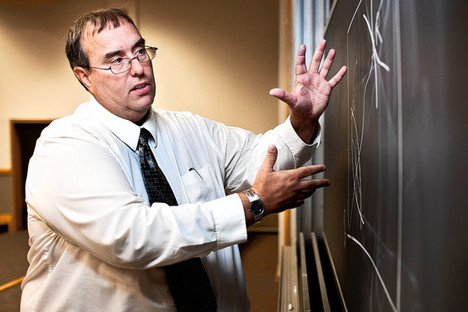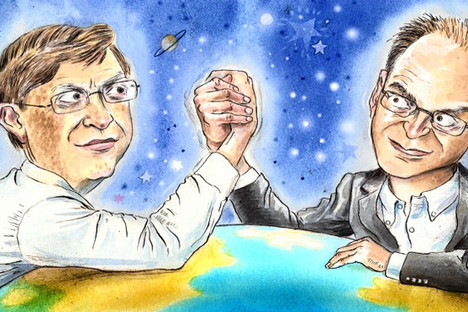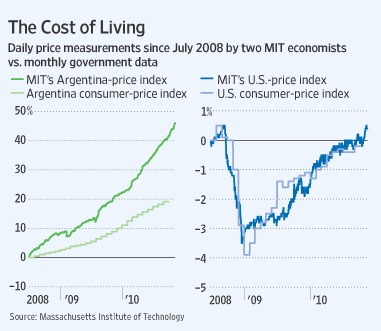 “Peter J. Boettke of George Mason University is the emerging standardbearer for a revived Austrian school of economics.” Source of caption and photo: online version of the WSJ article quoted and cited below.
“Peter J. Boettke of George Mason University is the emerging standardbearer for a revived Austrian school of economics.” Source of caption and photo: online version of the WSJ article quoted and cited below.
(p. B1) Peter J. Boettke, shuffling around in a maroon velour track suit or faux-leather rubber shoes he calls “dress Crocs,” hardly seems like the type to lead a revolution.
But the 50-year-old professor of economics at George Mason University in Virginia is emerging as the intellectual standard-bearer for the Austrian school of economics that opposes government intervention in markets and decries federal spending to prop up demand during times of crisis. Mr. Boettke, whose latest research explores people’s ability to self-regulate, also is minting a new generation of disciples who are spreading the Austrian approach throughout academia, where it had long been left for dead.
To these free-market economists, government intrusion ultimately sows the seeds of the next crisis. It hampers what one famous Austrian, Joseph Schumpeter, called the process of “creative destruction.”
. . .
(p. B3) It wasn’t a lack of government oversight that led to the crisis, as some economists argue, but too much of it, Mr. Boettke says. Specifically, low interest rates and policies that subsidized homeownership “gave people the crazy juice,” he says.
For the full story, see:
KELLY EVANS. “Spreading Hayek, Spurning Keynes; Professor Leads an Austrian Revival.” The Wall Street Journal (Sat., AUGUST 28, 2010): B1 & B3.
(Note: ellipsis added.)






